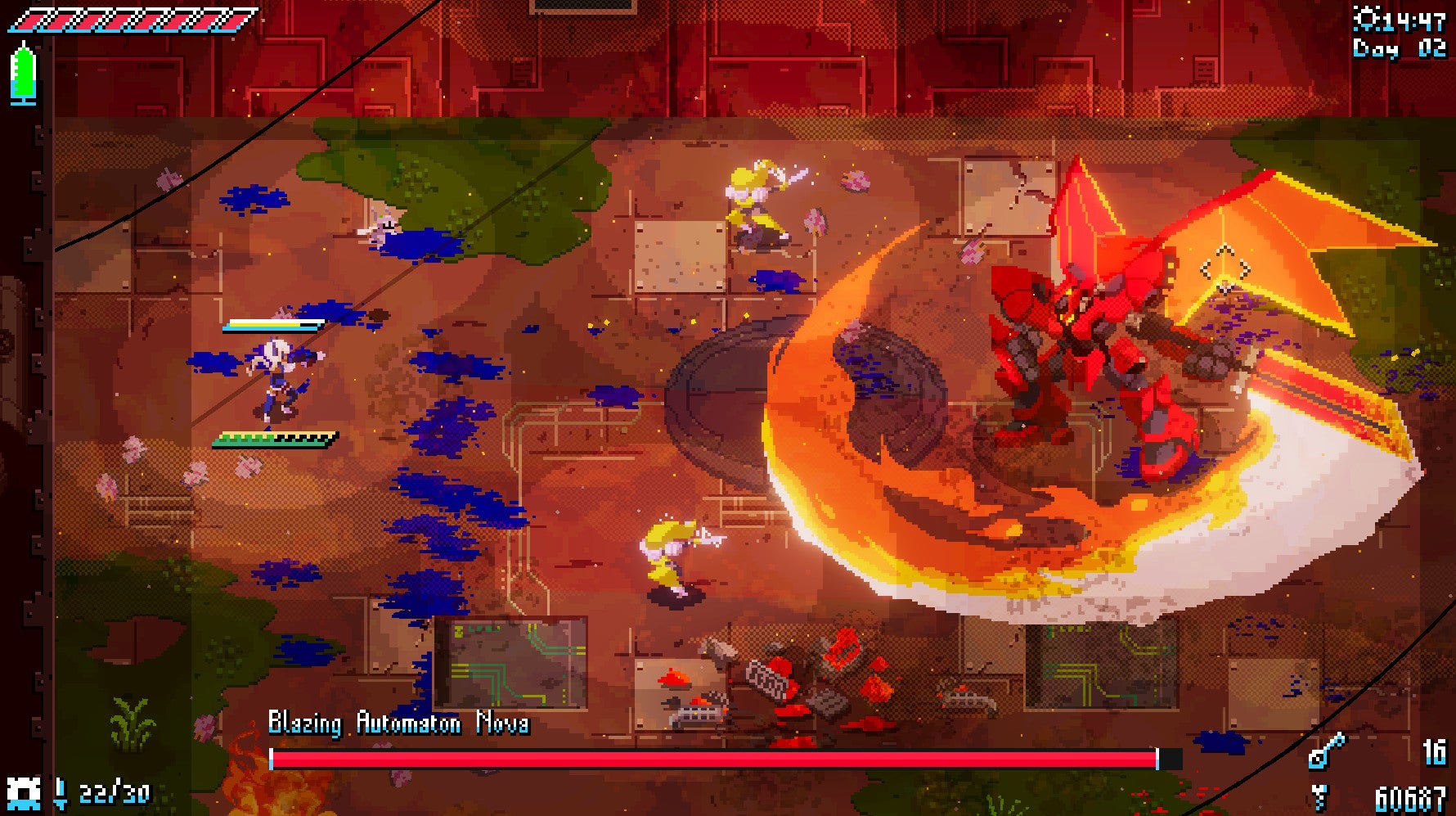Spoiler warning: This piece contains spoilers for Unsighted.
Every once in a while, along comes a game I just can’t stop thinking about. Sometimes it’s just because of a single moment, like the boss fight with Ludwig, The Holy Blade in Bloodborne. Or like how Nier slowly lets you in on its story through multiple playthroughs. More often than not though, it’s because of how the world is realised. And I don’t think 2021 had a more fleshed out world than the metroidvania Unsighted. So to attempt to unpack what makes the game so interesting, I sat down with the duo that makes up Studio Pixel Punk, Tiani Pixel and Fernanda Dias.
UnsightedPublisher: Humble GamesDeveloper: Studio Pixel Punk.Availability: Out now on PC, Switch, Xbox and PS4
For some reason, 2022 has seen a small trend of developers advertising just how much is in their game. Techland clearly believed that Dying Light 2 taking 500 hours to fully complete was a good advertising point. Games can be so overwhelmingly stuffed and desperate for you to do every last thing they have to offer by littering the map with quest markers. Unsighted too, is a game with a whole lot to do, but it won’t get upset at you if you don’t do everything.
Borrowing from a range of games, Unsighted places its protagonist Alma, an android, in a world where time is constantly running out. The energy source that powers automatons, the in-world name of the androids, is fast depleting, and both Alma and every NPC in the game has a timer which counts down to the moment they turn unsighted, a state of being where you lose all sense of self. So of course with that time limit, designing a game that encourages you to do everything wouldn’t work.
“The word you used, ‘content’, is something we’re not big fans of when talking about art, be it movies, games or books,” Pixel answered me when I brought up the point that games like Dying Light have ‘hundreds of hours of content’. “It makes everything feel like a product that you have to consume the moment you paid for it, and then move on to buy more content somewhere else. We believe that this mentality leads to games that are bloated with ‘content’ and with very little room for reflection on the concepts of the game, or re-examination of the medium.”
